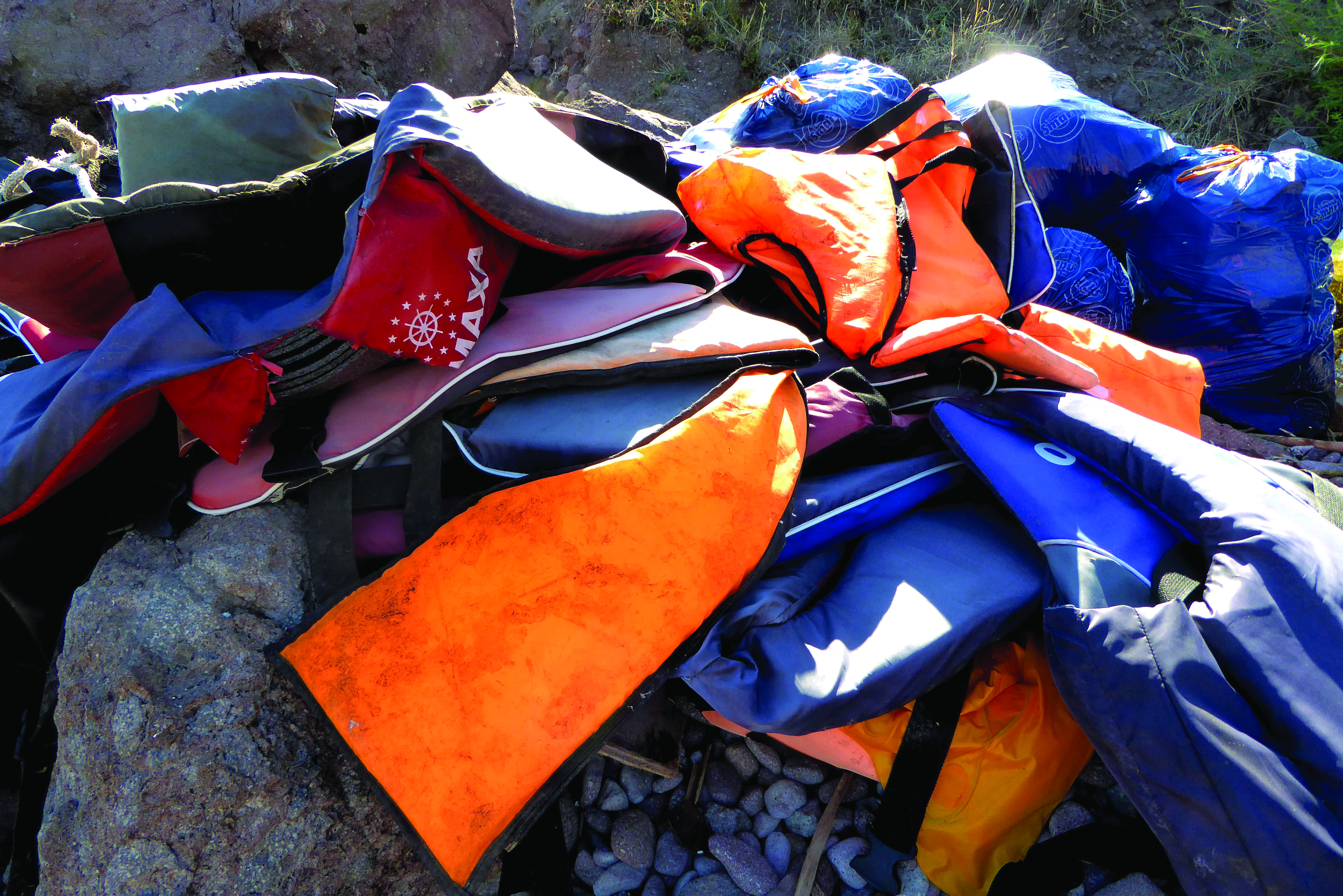THE CROSSING
By Lily Doron, 2020

Refugees traveling to Europe from Turkey typically depart from Izmir and arrive on the island of Lesvos across the Aegean Sea. For many, this is the most terrifying part of the journey. The crossing is extremely dangerous. The sea can be rough, and often the dinghies supplied by human traffickers are filled over capacity. Even if people wear life jackets, many are fake and sink in the water. Refugees, not trained captains, drive the boats, though they have never done so before. The approximately 5-mile journey can take hours. Tens of thousands have died.
You will hear three refugees — Sayid* from Syria, Ibrahim* from Iraq, and Hakim* from Afghanistan — describe their experiences crossing the Aegean Sea with their families. They speak of storms rolling in and boats twisting and turning in the waves. The help they ask for sometimes goes unanswered and they worry about their children, unable to protect them from the sea. All three fear death, but in the moment, all they can do is pray for their lives and the lives of their families.
These interviews were conducted in July 2016. Yet violent conflicts continue and people still attempt the journey across the sea in search of safety and freedom. In 2020 so far — from January 1 until February 13 — at least 77 people have died on the Aegean Sea.
*Pseudonym used
https://soundcloud.com/oralhistory_columbia/the-crossing
Transcript
Narrator: For refugees searching for safety and stability in Europe, the voyage across the Aegean Sea – from Turkey to Greece – is typically the most dangerous and terrifying part of their journey. And yet hundreds of thousands of people have attempted the crossing, because they have no other choice.
Sayid: The journey in the boat took about 7 hours. Because when you go by the boat, no one help you. They put the refugees in the boat and let them go.
Narrator: Traffickers do not captain the boats. Instead, they ask for refugee volunteers, most of whom have never driven a boat before.
Ibrahim: The sailor [boat captain] was a refugee also. So he says, “Ok I am a refugee also, so I’m not a boat sailor.” So our lives was in the sailor’s hands who wasn’t a sailor himself.
Narrator: Traffickers stuff the small boats as full of people as possible.
Hakim: At first I was thinking that we are just 10 people that we go with these boats. When we reached to there, a lot of another people from, I didn’t know from where they come. And about 60 people in a small boat, 7 or 9 meters, just that.
Ibrahim: And we were just only counting the kids, that maybe we missed one.
Narrator: On the sea, refugees face threats of winds picking up, of boat motors shutting off, of boats sinking under the weight of too many people, of storms coming.
Hakim: When we started, at first we were twisting. All the people were screaming, crying, and lots of people were praying with loud voice.
Ibrahim: He says, “This means that we will die.” So actually we will die because we are in the middle of [a] storm and, ok, the water was coming like big waves, so we will die. We will fall.
Narrator: When danger begins to arise, often refugees try to call for help. Sometimes it comes, sometimes it doesn’t.
Ibrahim: We tried to call the Turkish navy and he switched off his phone. And we start to talk to the Greek people and they said, “Ok, this does not belong to us and I really don’t care.”
Sayid: And the boat start to sinking. And we was now facing the death. We called the Greece navy and they came to help us. But it was really a death moment. And there was children too. We looking to the children like, we cannot do anything, you see that the child dying, you cannot do anything. He crying and he want mercy, he want help, but you cannot do anything. Then the navy came, the police came, and took us to the land.
Ibrahim: But you know, all of the things that I said, the experience of passing the seas you can’t feel how was that fear.